New show! New website!
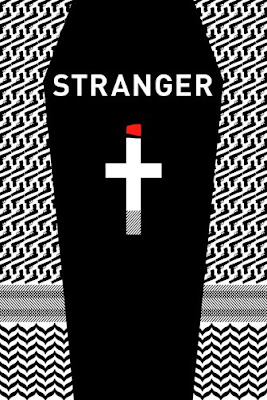 Praxis Theatre is thrilled to announce that after more than two years in development, our brand new show is almost ready to go.
Praxis Theatre is thrilled to announce that after more than two years in development, our brand new show is almost ready to go.
The show is called Stranger and it’s based on Albert Camus’ 1942 existential masterpiece novel L’Étranger.
To help you get a sense of the show, we’ve put together a brand new website with production information, photos of the cast, free downloadable wallpaper for your desktop – you can even buy tickets right from the site.
Check out the new microsite here: Stranger.
We’ll be updating the site regularly leading up to the show’s opening on January 23 and throughout the run. Please stay tuned for more details as we get closer to opening night.
Hope to see you at the theatre!
Regards,
Your friends at Praxis Theatre
Producing on the fringe
 Before becoming a Supervisor with Special Events (Cultural Division) for the City of Toronto, Bridget MacIntosh was the Producer of the Fringe of Toronto Theatre Festival, and Founding Producer of The Next Stage Festival. This made Bridget the ideal person to sit down with Gideon Arthurs, newly minted Executive Director of The Fringe of Toronto Theatre Festival, to have some beers and hear what’s new with The Fringe.
Before becoming a Supervisor with Special Events (Cultural Division) for the City of Toronto, Bridget MacIntosh was the Producer of the Fringe of Toronto Theatre Festival, and Founding Producer of The Next Stage Festival. This made Bridget the ideal person to sit down with Gideon Arthurs, newly minted Executive Director of The Fringe of Toronto Theatre Festival, to have some beers and hear what’s new with The Fringe.
BRIDGET: So I hear January is the new July Gid. Tell me what what’s up?
GIDEON: Everything. I mean everything. I have a new life-affirming/hopelessness-inducing task management system that reminds me that there is simply just no more time for anything. Mostly, that list is filled with the final details and prep for the Next Stage Theatre Festival (Jan 7-18!!!!) There are also one or two notes about the impending final gasping collapse of the world economy and the ensuing disappearance of arts’ funding in Canada and what extreme contingencies we’ll have to roll out if/when that happens. Also, I need to polish my boots before the festival starts and buy brown sugar.
BRIDGET: I made some brown sugar fudge over the holidays. Always good to have brown sugar nearby… but really I can’t believe it’s already time for Next Stage. I still have these moments where I think back and am like, “Wow! Did that really happen?” As the second instalment of Next Stage begins, just what kind of festival do you think you’ve inherited with Next Stage?
GIDEON: A fresh, full of potential, important festival. A festival that is a new, but deeply pure and true, incarnation of the Fringe’s principles. A brave, crazy one too – mid-January, a tent, no lottery… what the hell were you thinking? On a personal level, I’ve felt that NSTF has also afforded me the greatest sense of possession since I started at the Fringe almost a year ago. It’s been harder to understand and personally affect the massive beast that is our summer festival. With 20 years of institutional structure behind it, I sometimes wonder who the hell I am to try and improve it… But with NSTF being so young, and so full of potential for growth and creative input, I have a real view about what this festival can become, and how our team can make that view a reality.
BRIDGET: I know you know my thoughts on this but how do you think the Next Stage fits into the overall role of the Fringe of Toronto Theatre Festival?
GIDEON: I think it fits perfectly – more than an extension of what we do, it’s an evolution that makes sense. After 20 years, the Fringe is really in a place to claim its leadership role and continue to represent our constituents in new and innovative ways. Sometimes, talk like this frustrates me, but I find myself saying over and over again “Why don’t they know!? We’re at 58,000+ in attendance, we’ve given out $4 million over twenty years to thousands of artists, we employ over 100 people a year, we’re spread out to 30 different venues, we were the launching pad for the two most successful productions in Canadian Theatre… why aren’t you taking us seriously!!??” With Next Stage I honestly believe we’ve shown that we’re responsive and capable of growth, and therefore more “serious”, more confident, more capable. My hope over the next few years is to see the Fringe become THE voice for emerging and independent arts, a nexus of creative voices that cumulatively are stronger and louder than when alone, and who’s ranks include artists AND patrons as advocates for culture in our city.
OR
In Naval terms, Next Stage is the Cruiser to the Fringe’s Battleship.
BRIDGET: Or in bad 80’s movie terms, the Goose to the Fringe’s Maverick?
GIDEON: (silence)
BRIDGET: (silence)
BRIDGET: Next Stage is such a huge step in the evolution of the Fringe. With such a dynamic festival so you have any particular hopes or goals for the Next Stage over the next few years?
GIDEON: I’m trying hard in this yuletide season to only make qualitative goals, but I can’t help getting a little quantitative right now. Goal 1 – more people, more people watching plays, more plays made successes, more art-time for artists, more money for artists, more acclaim for the festival and participants, more patrons who can’t stop talking about the festival. More. Goal 2 – better operations, better funding, better understanding of what goes into making art by commenters on newspaper websites, better opportunities for our artists . . . better.
BRIDGET: Hey, you’re also coming up on your first year anniversary at the Fringe and we’ve still been playing tag with meeting up for steak. Although having beers and talking about theatre are great, just when is this meet for steak thing going to happen?
GIDEON: 2016
BRIDGET: (silence)
GIDEON: You know, my Mum’s flank steak was always my favourite, but it takes too long to marinate so I never make it.
BRIDGET: Any other challenges you’d like to talk about?
GIDEON: This job has truly been the challenge of a lifetime. In my four year plan, year 1 is labelled “Survival”. One of the major issues, that I think many of us in the arts face, is that there is infinite work to do. There is no ceiling, no control, and achievements are intangible – it’s that old “bringing back a 96% on a test and your parents asking you where the other 4% went”. No matter how many people come to the festival, no matter how much money we raise, there’s always more. No matter how many new programs we implement, we could implement more of them or make them bigger…The only limit is the exhaustion line, and when my wife tells me to come home. The first 48 hours of the ’08 Festival were possibly the worst 48 hours of my life. I was in so far above my head, I can’t even really remember what happened after we discovered that our ticketing software had crashed opening morning and none of our walkie-talkies worked.
BRIDGET: I once burned myself on a faulty festival cell phone.
GIDEON: (silence)
BRIDGET: I’m a *bit* biased here but I’ve always felt that the Fringe senior staff have been, and I’m sure continue to be, one of the finest festival staffs you can find. Graciousness aside, now, between you and me….if your entire Fringe senior staff were a street gang, how would you describe their individual fighting styles and who would come out on top if pitted against one another in a death match? I’m just saying, it’s like I’ve though about this before or anything.
 GIDEON: We tried to arrange this one fight once with SummerWorks but we would have had to lend them our weapons and several of our staff, so it didn’t seem worthwhile. I see my staff/gang as more of a post-apocalypse urban gang than dance flick or 80’s gang. Paula “Silent and Violent” Forst, our Producer, is definitely the muscle – I’d say she’d do well with two giant mallets for some crashing and smashing. Adam “Grasshopper” Kirkham, our fundraiser, is quick on his feet and packs a wallop with a sock full of dimes. Lindsey “Voluntold” Clark, doing our volunteer coordinating, doesn’t engage in hand to hand herself but commandeers a legion of blood-thirsty volunteers to do her fighting for her. And then there’s the techs and box office staff, who to be honest will do anything for beer…They’re the group that shows up just when it looks like we’re outmuscled in a fight… the cavalry if you will. When push comes to shove though I’d have to say I would win in a fight against all of them, only because I’m an expert at driving people into a blind rage that allows me to take advantage of their weaknesses.
GIDEON: We tried to arrange this one fight once with SummerWorks but we would have had to lend them our weapons and several of our staff, so it didn’t seem worthwhile. I see my staff/gang as more of a post-apocalypse urban gang than dance flick or 80’s gang. Paula “Silent and Violent” Forst, our Producer, is definitely the muscle – I’d say she’d do well with two giant mallets for some crashing and smashing. Adam “Grasshopper” Kirkham, our fundraiser, is quick on his feet and packs a wallop with a sock full of dimes. Lindsey “Voluntold” Clark, doing our volunteer coordinating, doesn’t engage in hand to hand herself but commandeers a legion of blood-thirsty volunteers to do her fighting for her. And then there’s the techs and box office staff, who to be honest will do anything for beer…They’re the group that shows up just when it looks like we’re outmuscled in a fight… the cavalry if you will. When push comes to shove though I’d have to say I would win in a fight against all of them, only because I’m an expert at driving people into a blind rage that allows me to take advantage of their weaknesses.
BRIDGET: Nicely played there buddy.
GIDEON: That blind rage stuff though. It’s true.
BRIDGET: Hey since we’re not doing the steak thing for a while, might as well tell me what you’re doing in the meantime. I hear that there are some new activities afoot? Do tell.
GIDEON: I’m incredibly excited about what we’re calling our new “initiatives”. We’re hoping to make official announcements soon, but they go as follows:
The Fringe Evolution Fund – to encourage remounts of successful Fringe shows, we’ll be giving out grants to help cover production costs for Fringe shows re-produced by the original company within five years of first appearing at the Toronto Fringe. We’re hoping to be able to give out as much as $10,000 within three years.
The Charrettes – inspired by design salons of the 19th century, this is a series of five meetings with relevant stakeholders to propose solutions to problems facing the performance community. Our first Charrette, about the shortage of rehearsal and performance space for small companies was a great success. Our next one is about adapting fundraising techniques for larger institutions to suit small companies… stay tuned for details.
Office Residencies -we have all the resources in place to welcome small into our offices during our down periods, to help bring their producing out of their kitchens and into a creative hub with other arts administrators.
OTICs (Online Ticketing for Independent Companies) – we’re offering subsidized access to our new online ticketing systems for small companies.
The Fringe/Paprika Festival Partnership – we’ll be working with the Paprika festival to make sure their youth get out to the Fringe as well as inviting one production to perform at the Fringe in 2009
BRIDGET: Love it. I think its important to get he word out about programs like these. To that end, this will eventually end up on a theatre blog. Any random thoughts on theatre blogs?
GIDEON: Isn’t the internet going to save theatre? Sometimes, I think we want to think that because the internet’s cheaper than everything else and is all we have… Now excuse me, I have to check my Facebook… for professional reasons.
BRIDGET: Oh yeah, sure no problem.
(2 HOURS LATER)
BRIDGET: Poked a lot?
GIDEON: (silence)
BRIDGET: Well Gid, thanks for the chat. Any words of wisdom to end off on? Any overall posits in the state of the performing arts?
GIDEON: I keep on trying to come up with different ways of saying this that don’t make me sound like I’m commoditising the creative process, but I give in. Money. Money is the challenge of the moment, not because money makes good art, and certainly not because we make art for money, but because without funding we are forced into impossible, un-artistic situations. I’m very afraid of what sort of art will be made when what seems to be brewing in arts funding comes to pass…
Just the facts: Next Stage Theatre Festival Edition v3
Where: Factory Theatre Mainspace, Toronto, Canada
What: Adapted from the opera by Igor Stravinsky and the original engravings by William Hogarth, this show charts the course of Tom Rakewell through a loutish and debauched London.
Why: The 18th century engravings of The Rake’s Progress alarmed and thrilled, the 20th century opera’s lustiness astonished the 1953 Edinburgh Festival, how will 21st century audiences react to this updated evolution?
Web: MacKenzieRo Website
Hype: MacKenzieRo’s previous production of DISCO PIGS was a hit at the 2007 Toronto Fringe, followed by a highly successful remount at Alchemy Theatre in 2008.
 Reesor
Reesor
Who: Reesor Collective
Where: Factory Studio Theatre, Toronto, Canada
What: Combines live music, performance, shadow-puppets, baking and a man in a bear suit to tell the story of a ghost town in Northern Ontario.
Why: In 1926, 400 people called Reesor, Ontario home. Now, all that remains is a pile of stone.
Web: Reesor Myspace Page
Hype: Toronto Fringe 2007 Best Overall Production, Best Music, Critic’s Pick – NOW Magazine, “Best of the Fringe Series” – Diesel Playhouse
 Humans Anonymous
Humans Anonymous
Who: The Anonymous Co-op
Where: Factory Theatre Mainspace, Toronto, Canada
What: One is afraid of loneliness. Two is afraid of happiness. Three is afraid of ignorance. Four is afraid of judgment. Five is afraid of gremlins – even the nice ones. One loves four; three loves one; five loves cats.
Why: Returns to Toronto with new material and a New York run under its belt with the Bridge Theatre Company.
Web: The Official Kate Hewlett Fansite.
Hype: Not only did this 2006 Fringe show garner enough attention to transfer to New York, but playwright Kate Hewlett’s subsequent fringe play, The Swearing Jar, was also a hit at the 2008 Toronto Fringe.
10 things I learned about theatre in 2008
 When in doubt, make a numbered list. That’s at least part of the thinking behind Praxis Theatre Director of Marketing Ian Mackenzie’s recent guest post at The Next Stage theatre blog: 10 things I learned about theatre in 2008.
When in doubt, make a numbered list. That’s at least part of the thinking behind Praxis Theatre Director of Marketing Ian Mackenzie’s recent guest post at The Next Stage theatre blog: 10 things I learned about theatre in 2008.
Quasi-cantakerous, painfully obvious, or productively blunt?
You decide.
Please check out the full list of 10 at The Next Stage, here.
Just the Facts: Next Stage Theatre Festival Edition v2
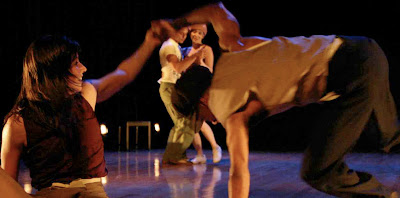
Take It Back
Who: Solid State Breakdance
Where: Factory Theatre Mainspace, Toronto, Canada
What: A combination of the high physicality of B-boying (Breakdance) with the partnering structures of Lindy Hop (Swing) and the aesthetics of Contemporary Dance.
Why: Asks the question: “Why don’t we dance in couples anymore?”
Web: Solid State Website.
Hype: “So organic and fun-loving that it manages to invent a dazzling new vocabulary, make statements on gender roles, and get the audience members whooping like they’re at a full-blown battle.” Straight.com
L’Ange Avec Les Fleurs
Who: Beth Marshall
Where: Factory Theatre Mainspace, Toronto, Canada
What A troupe of vagabond performers their band, tell the tale of a clown’s journey to become a real man through an explosion of song, dance, puppetry, clowning and use of a BIG FRENCH BEAR!
Why: It’s a clown show derived from a synthesis of Henry Miller and Herman Hesse.
Web: L’Ange Avec Les Fleurs MySpace Page.
Hype: WINNER: Best Production, Acting and Set – Orlando Fringe
Someone else’s turn to take on "truthiness"
“Pinter restored theatre to its basic elements: an enclosed space and unpredictable dialogue, where people are at the mercy of each other and pretense crumbles”
Nobel Academy on why it awarded Harold Pinter the Nobel Prize in Literature in 2005.
The absolute evisceration of pretense will almost certainly be the cornerstone of the ideas that will define Harold Pinter’s legacy. He simply had absolutely no patience whatsoever for bullshit. On stage it made for bad theatre, and in the international arena it had catastrophic human consequences.
Pinter’s Nobel lecture had very little to do with theatre and everything to do with being one of the quintessential critiques of the Bush administration and post-WWII US foreign policy.
Above all things, it is a call to arms for citizens to defend truth in the public sphere. For Pinter, although truth can be many shades of malleable grey in art, there is a central truth that all inhabitants of earth share. It is the job of intellectuals to defend this truth against the manipulations of self-serving often murderous interests:
“I believe that despite the enormous odds which exist, unflinching, unswerving, fierce intellectual determination, as citizens, to define the real truth of our lives and our societies is a crucial obligation which devolves upon us all. It is in fact mandatory.”
You can read the full text of Harold Pinter’s Nobel lecture to the Swedish Academy here.
Harold Pinter
Master artist and unflinching social justice and peace activist
1930-2008
Just the facts: Next Stage Theatre Festival Edition v1
Theatre is Territory will be Just The Facts-ing all eight entries in the second edition of Toronto’s Next Stage Theatre Festival.
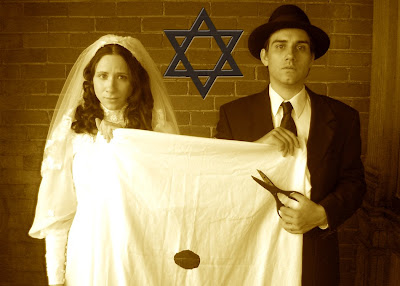
Where: Factory Theatre Studio, Toronto, Canada
What: A one-act play in three parts that examines intimate moments surrounding the arranged wedding of a young Orthodox Jewish couple, and the impact their union has on their families.
Why: Three words: Live Klezmer Band
Web: Convergence Theatre Facebook page.
Hype: Previous fringe productions AutoShow and The Gladstone Variations were runaway must-see hits garnering numerous accolades.
Who: Fire Up Co-operative
Where: Factory Theatre Studio, Toronto, Canada
What: A play set within a woman’s heart and mind. It is a journey through heartache and healing told by the stages of grief: Denial, Bargaining, Anger, Depression and Acceptance.
Why: CAUTION: Show contains spontaneous simulated Orgasms!
Web: Playwright/Performer Sarah Michelle Brown’s website.
Hype: WINNER: Chapters “Best Text Award” Montreal Fringe
Who: Steady State Theatre Project
Where: Factory Theatre Studio, Toronto, Canada
What: Daniel and Ariella, Star-of-David-crossed first cousins, whose innocent shiva makeout session forces them down a path of shame and regret. When they are finally pushed to the limits of their defenses, Daniel and Ariella find themselves face to face with everything they’ve been trying to avoid.
Why: Only play from the “incest-comedy-drama” genre in the festival.
Web: Don’t Look Facebook event page.
Hype: Toronto Fringe Outstanding Production: NOW Magazine
Volcano’s Africa Trilogy: Part I
After much thought and talk about the lack of content about content on this blog and several others, this series will be an attempt to create an online discussion about the process and product of a massive theatrical undertaking. It is my hope that this will translate to something approximating content about content:
Volcano Theatre’s Africa Trilogy
With some funding from the generous folks at Theatre Ontario, I will be training with Volcano as an Artistic Producer on this project. It’s a really great opportunity to see and share how something of this magnitude goes from an inception to incredibly ambitous production.
Ideally, this series will follow the project to its conclusion for the next year and a half and will have multiple authors representing many of the different perspectives the trilogy will encompass. Volcano Artistic Director, Ross Manson, has been generous enough to be all for me organizing something like this. Thanks Ross.
Volcano’s website describes the project as:
“An international trilogy of plays that will focus on the West’s relationship with Africa.
The three playwrights come from three regions: Africa, Europe, North America. The directors come from different countries within these three continents, thus making the project a six-country, three continent effort.
The theatre artists joining the project are relatively young, and formally experimental – mid or early-career innovators, already with national or international reputations. The starting point is the 2005 series of Massey Lectures given by Stephen Lewis, United Nations special envoy for HIV/AIDS in Africa from 2001 to 2006.”
Binyavanga Wainaina is the winner of the 2002 Caine prize for African literature, and the founding editor of Kenya’s only literary journal, Kwani?. He is one of the most important literary figures of his generation in Central Africa.
Roland Schimmelpfennig is the winner of the 2002 Vienna Nestroy Prize, and the Schiller-Gedächtnis Prize (awarded yearly in Germany for an outstanding literary contribution by a young dramatist). He is one of the most prolific and heralded young dramatists in Europe.
Christina Anderson was identified by American Theatre magazine as one of only fifteen US artists under 30 “whose work will be transforming America’s stages for decades to come.”
Liesl Tommy grew up in a township in Cape Town, South Africa. She studied at Oxford and the Claire Davidson Drama Centre in London, then earned her MFA from Trinity Rep Conservatory in the USA. She has been hailed as “eccentrically imaginative” by the New York Post, and a “standout” by the New York Times.
Ross Manson is a Dora and KM Hunter award-winning theatre director based in Toronto, whose work won the 2006 “Best of Edinburgh” prize at the world’s largest theatre festival. His international award-winning company, Volcano, has been identified by NOW magazine as the “best independent theatre company in Toronto”.
The entire team is currently working with a cast of 10 workshoping the first draft of their three scripts at the Lower Ossington Theatre in Toronto. These workshops are actually the fourth stage of the process following a planning meeting at Toronto’s Gladstone Hotel in November 2007, a research trip to Rwanda and Uganda in March 2008, and a weekend of follow up meetings with the playwrights in New York City in June of 2008.
There is another workshop to follow in the spring of 2009 at Theatre Passe Muraille, and likely much more work between then and when it opens as part of Toronto’s Luminato festival in 2010.
So there should be lots to talk about. Stay tuned for more posts on this project from many different collaborators.
What’s the deal with being an actor in Tokyo? Part 2
Part 2 of an English-speaking-ex-pat acting primer for Tokyo
By Benjamin Johnson
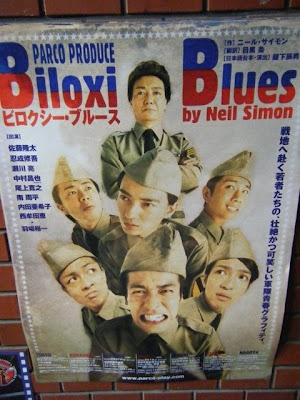
JAPAN – In Japan they speak Japanese. So I shouldn’t be surprised at the lack of English theatre. But perhaps the problem is not the language barrier, but the arts industry, and perhaps the very business practices of the second-largest economy on the planet.
The largest English theatre company in Tokyo (their website says this will be their 112th season) is Tokyo International Players. They have four shows in their current season spanning a year, but unfortunately, each show only runs for four days… And the short run is a regular phenomenon with English and Japanese shows in Tokyo. They’re also actively seeking volunteers for all positions, which translates as: there is no money in English theatre in Tokyo.
As for Japanese theatre, the average run is also four days, with more high-profile shows (including casts of TV stars) running a scant two weeks. They appear to be heavily subsidized by sponsors and donations, with most non-Broadway Musical shows concentrated in the small area of Shimokitazawa. The economics of rehearsing for a couple weeks to do four performances is mysterious at best, and indicates that theatre audiences have not been developed as much as in western society.
A recent article in the Japan Times points to a company that has begun premiering shows in the UK to try and help sell their shows at home. The same strategy seems to work for the big musicals (Wicked, Annie, Lion King…), but says little for the potential growth of homegrown shows.
On the opposite end, the (“Broadway musical”) The Drowsy Chaperone opens in Tokyo this coming January (possibly with English subtitles for tourists…). Originally premiered at the Toronto Fringe Festival in 2001, after eight years and a successful New York run, it’s finally crossing the other pond.

Japanese signing idol Ami Suzuki was the biggest music star in Japan in 1999, selling millions of CD’s and DVD’s, but despite this she made very little per month, plus less that half of one-percent of CD sales. When the president of her recording company was subsequently indicted on fraud charges, and details of her compensation exposed in court and reported in the news (despite threats), she was blacklisted by the industry and is just recently making a comeback as an independent artist, eight years later. And this is not an isolated phenomenon…
Moving further into mainstream, a recent article in the New York Times exposes a more sinister problem in the fabric of Japanese society, which is that Japan’s success as an economic force may be built on the back of the unpaid overtime of it’s entire work force. The article also points out that the practice of, “working oneself to death”, is so common in Japan there is a word for it, karoshi, and it’s not just an expression that means “to work a lot”.
Back to theatre, it would seem that the culture of unfair business practices towards artists (and employees in general), a potential theatre market that’s too busy working unpaid overtime, and a general complacency about the whole situation, has left one of the most intimate and personal forms of artistic expression, theatre, relegated to the side-lines. There is however, always hope.
An article in the Washington Post points to a growing movement in the younger Japanese, who are not interested in job promotions, or marriage, or taking on more responsibility of any kind, as a reaction to the suffocating atmosphere of the Japanese business culture, and that sad character: the salaryman. (Not to mention that Japan chose not to ratify the International Labour Standard of equal compensation for women). But perhaps the winds of change are coming to Japan, and a silent revolution could be brewing as we speak. Theatre, for it’s part, could play a vital role as a window on society, and a voice for the chorus of silent protesters, but book your tickets early, as it may only run for four days…
On a final note, perhaps there is a solution to the language barrier of English theatre in Tokyo, and that is: to reflect the reality of life in this city. English signs are everywhere, and every Japanese studies English in high school, although not enough to really understand well, but it presents the option of mixing the languages, (as most of my conversations are on a daily basis). Outside of the language, theatre is communication, and maybe that quintessential struggle should be on stage, as it is in the street…



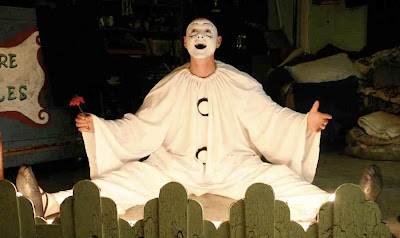


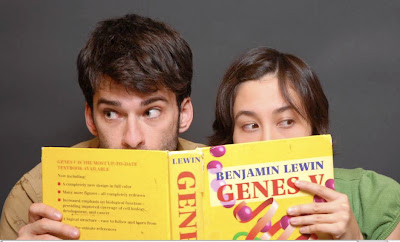

Recent Comments